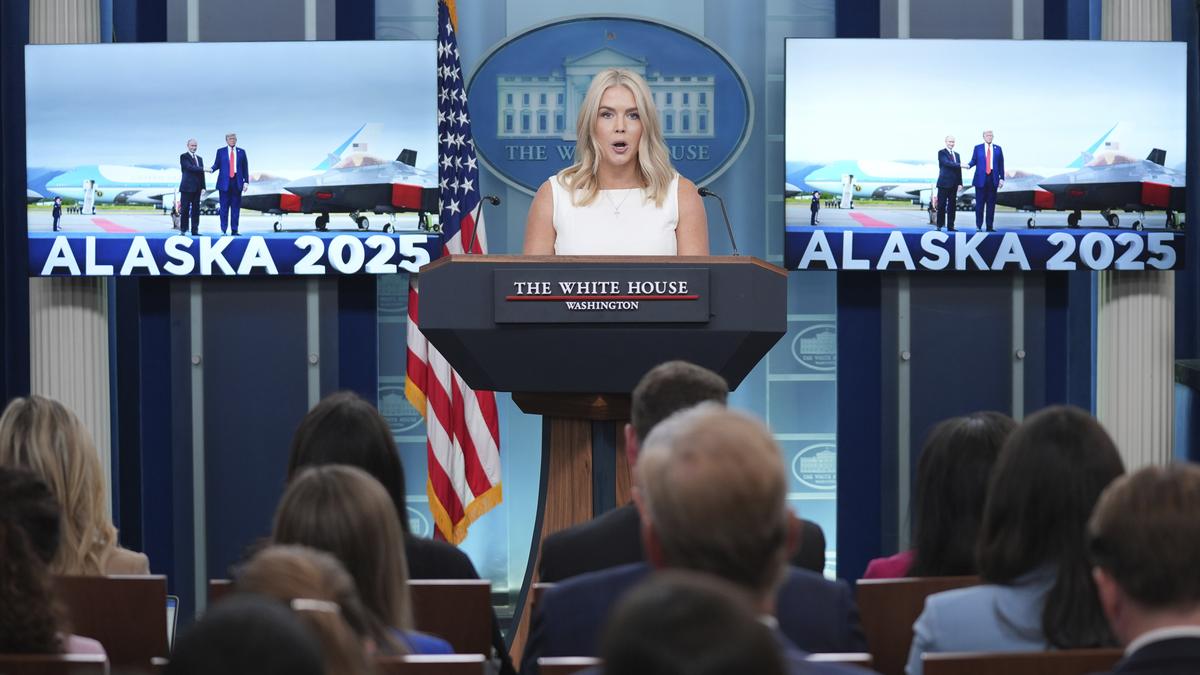 |
|
The article details the Trump administration's policies towards India concerning the Russia-Ukraine war and the India-Pakistan conflict. It highlights the imposition of tariffs on India, justified by the White House as a measure to pressure Russia to end the war in Ukraine. According to White House Press Secretary Karoline Leavitt, these sanctions on India, among other actions, demonstrate President Trump's commitment to resolving the conflict. Simultaneously, U.S. Treasury Secretary Scott Bessent accused India of 'profiteering' by reselling Russian oil, while seemingly excusing China's similar behavior due to China's already existing reliance on Russian oil before the invasion of Ukraine. Bessent pointed out that India's Russian oil imports drastically increased post-invasion, leading to substantial profits for Indian entities, which he deemed unacceptable. The tariffs imposed on India include a 25% levy on New Delhi's purchases of Russian oil, set to take effect from August 27, adding to the existing strain in India-U.S. relations. Moody’s Analytics predicts a significant reduction in demand for Indian exports to the U.S. due to these tariffs. Bessent further threatened secondary sanctions on India if Trump's meeting with Putin did not yield desired outcomes, escalating the pressure on India to alter its economic relationship with Russia. India has responded by labeling the tariffs as 'unjustified and unreasonable.' The article also reports the White House’s claim that Trump successfully ended the military conflict between India and Pakistan, a claim attributed to his strength and leverage as President. Leavitt asserted that Trump utilized trade as a powerful tool to achieve this resolution, highlighting a ceasefire agreement reached after Washington's mediation. However, India maintains that the understanding on the cessation of hostilities with Pakistan resulted from direct talks between the Directors General of Military Operations (DGMOs) of the two militaries, and that no foreign leader asked India to stop Operation Sindoor. This presents a conflicting narrative, with the U.S. administration taking credit for resolving a conflict that India attributes to its own bilateral efforts. The article underscores the complex and evolving dynamics of international relations, trade policies, and conflict resolution efforts under the Trump administration, particularly focusing on the implications for India.
The Trump administration's rationale for imposing tariffs on India based on its purchase of Russian oil presents a multifaceted geopolitical and economic dilemma. On one hand, the U.S. is attempting to exert maximum pressure on Russia to curtail its aggression in Ukraine by limiting its access to revenue streams. India's increased acquisition of discounted Russian oil, driven by economic incentives and energy security considerations, partially undermines these efforts. The argument that India is 'profiteering' by reselling this oil, as alleged by Secretary Bessent, introduces an element of moral judgment into the economic relationship. However, this accusation is not without its critics and complexities. Many observers argue that India, like any nation, has the right to pursue policies that serve its national interests, particularly in ensuring affordable energy access for its large and growing population. Furthermore, the singling out of India while seemingly giving China a pass raises questions of fairness and consistency in U.S. foreign policy. China's pre-existing dependence on Russian oil is cited as a mitigating factor, but the fact remains that China remains a significant consumer of Russian energy resources, thereby also contributing to Russia's financial stability. The imposition of tariffs, while intended to influence India's behavior, could also have unintended consequences, potentially harming Indian businesses and consumers, escalating trade tensions between the two countries, and even pushing India closer to Russia or China. The effectiveness of tariffs as a foreign policy tool is also debatable, as countries may find ways to circumvent them or retaliate with their own trade barriers.
The White House's claim of President Trump ending the India-Pakistan conflict adds another layer of complexity and potential controversy to the narrative. The assertion that Trump mediated a 'full and immediate' ceasefire between India and Pakistan, repeated numerous times by the former President, directly contradicts India's official stance. India maintains that the understanding on the cessation of hostilities was a result of direct dialogue between the military leadership of both countries, without external intervention. This discrepancy raises questions about the accuracy and credibility of the White House's claims. While the U.S. may have played a facilitating role behind the scenes, taking sole credit for resolving the conflict appears to be an exaggeration, if not an outright misrepresentation of the facts. Furthermore, the claim that the conflict 'could have resulted in a nuclear war' without Trump's intervention is highly speculative and potentially alarmist. Such rhetoric risks oversimplifying a complex and long-standing geopolitical issue and could be seen as an attempt to inflate the President's accomplishments. The differing narratives surrounding the India-Pakistan conflict highlight the challenges of international diplomacy and the importance of accurate and nuanced reporting. It also underscores the potential for political motivations to influence the presentation of historical events. Ultimately, the article presents a critical examination of the Trump administration's foreign policy decisions, their implications for India, and the conflicting accounts surrounding key events.
Source: Trump imposed tariffs on India to end Russia-Ukraine war, says White House
